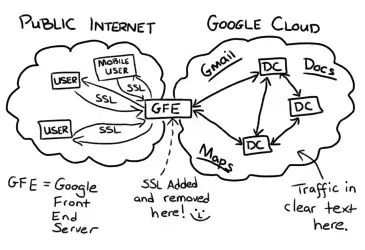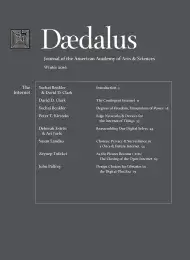
The Contingent Internet
The technical nature of the Internet and the structure of its ecosystem is highly contingent on design decisions made at the birth of the network. David Clark explores these decisions, and forecasts design decisions the Internet will face in the near future, including their profound political, economic, social, and technological consequences.
Degrees of Freedom, Dimensions of Power
One of the most remarkable features of the early Internet was the success of anarchies as functioning organizational bodies. But once the Internet’s massive political and economic potential became apparent, governments and corporations targeted Internet control points as a means of securing power over the Internet and exploiting profits from its uses, putting at risk the free and democratic promise of the early Internet.
Edge Networks & Devices for the Internet of Things
The Internet is fast becoming the Internet of Things, incorporating hundreds of billions (or trillions) of devices that can sense or control myriad aspects of our lives. Existing Internet protocols, however, are insufficient to meet this demand, and our move toward the Internet of Things will overturn fundamental assumptions we have held about Internet architecture.
Reassembling Our Digital Selves
The explosive growth of personal sensors (like Fitbit products) and digital trackers has stirred enormous interest in harnessing and exploiting small data: the digital traces we create in our day-to-day lives. But who owns this data, and how can users unlock it to create actionable recommendations about health, productivity, and lifestyle—while preserving individual security and privacy?
Choices: Privacy & Surveillance in a Once & Future Internet
With increasing government and corporate surveillance, as well as an Internet ecosystem funded by the sale of user information for targeted advertising, user privacy is an endangered concept. This essay explores the ways users can protect their privacy as well as the security of their Internet activities, and identifies the economic tradeoffs that result.
As the Pirates Become CEOs: The Closing of the Open Internet
Once an ecstatic—if chaotic—space of open communication and creativity, the Internet today is experienced by most users as a walled gardens of mobile apps and platforms, including Facebook and Google. What potential do these closed systems extinguish, and have we lost the open Internet for good?
Design Choices for Libraries in the Digital-Plus Era
The design evolution of the American public library is a microcosm of our society-wide debate about digital access points to knowledge, public versus commercial institutions, and civic participation. John Palfrey makes a passionate case for the role of public libraries in a functioning democracy, and outlines the ways in which libraries must adapt to meet the (increasingly digital) needs of their patrons.
